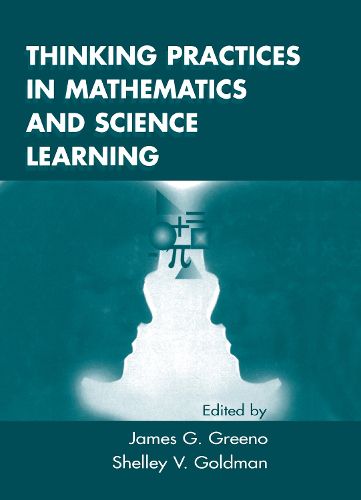Readings Newsletter
Become a Readings Member to make your shopping experience even easier.
Sign in or sign up for free!
You’re not far away from qualifying for FREE standard shipping within Australia
You’ve qualified for FREE standard shipping within Australia
The cart is loading…






This book’s title presents questions such as: what are thinking practices?; what would schools and other learning settings look like if they were organized for the learning of thinking practices?; are thinking practices general or do they differ by disciplines?; if there are differences, what implications do those differences have for how we organize teaching and learning?; and how do perspectives on learning, cognition and culture affect the kinds of learning experiences children and adults have? It examines progress toward answers to these questions involving several agendas. These include increased interdisciplinary communication and collaboration; reconciling research on cognition with research on teaching, learning and school culture; and increasing the connections between research and school practice. This collection of cases concerned with teaching, learning and thinking on the part of teachers, students and researchers is also a set of interactions about the topic of thinking practices. Two general identifying criteria were used to organize the papers into sections. One focuses on identity and participation on communities of practice; the other focuses on the characteristics of activities designed specifically for learning and the display of specific thinking practices. Both criteria enter into the contents of all the papers, but the papers located in the first section focus more on issues of community and identity, and the papers located in the second section focus more on ways in which learning activities are organized. Together, the papers map a movement toward new ways, founded on a respect for the social complexity of teaching and learning, to research the relationships between thinking, learning and education. The volume as a whole aims to offer a foundation for a community of researchers to develop further a better understanding of the organization and enhancement of thinking practices.
$9.00 standard shipping within Australia
FREE standard shipping within Australia for orders over $100.00
Express & International shipping calculated at checkout
This book’s title presents questions such as: what are thinking practices?; what would schools and other learning settings look like if they were organized for the learning of thinking practices?; are thinking practices general or do they differ by disciplines?; if there are differences, what implications do those differences have for how we organize teaching and learning?; and how do perspectives on learning, cognition and culture affect the kinds of learning experiences children and adults have? It examines progress toward answers to these questions involving several agendas. These include increased interdisciplinary communication and collaboration; reconciling research on cognition with research on teaching, learning and school culture; and increasing the connections between research and school practice. This collection of cases concerned with teaching, learning and thinking on the part of teachers, students and researchers is also a set of interactions about the topic of thinking practices. Two general identifying criteria were used to organize the papers into sections. One focuses on identity and participation on communities of practice; the other focuses on the characteristics of activities designed specifically for learning and the display of specific thinking practices. Both criteria enter into the contents of all the papers, but the papers located in the first section focus more on issues of community and identity, and the papers located in the second section focus more on ways in which learning activities are organized. Together, the papers map a movement toward new ways, founded on a respect for the social complexity of teaching and learning, to research the relationships between thinking, learning and education. The volume as a whole aims to offer a foundation for a community of researchers to develop further a better understanding of the organization and enhancement of thinking practices.